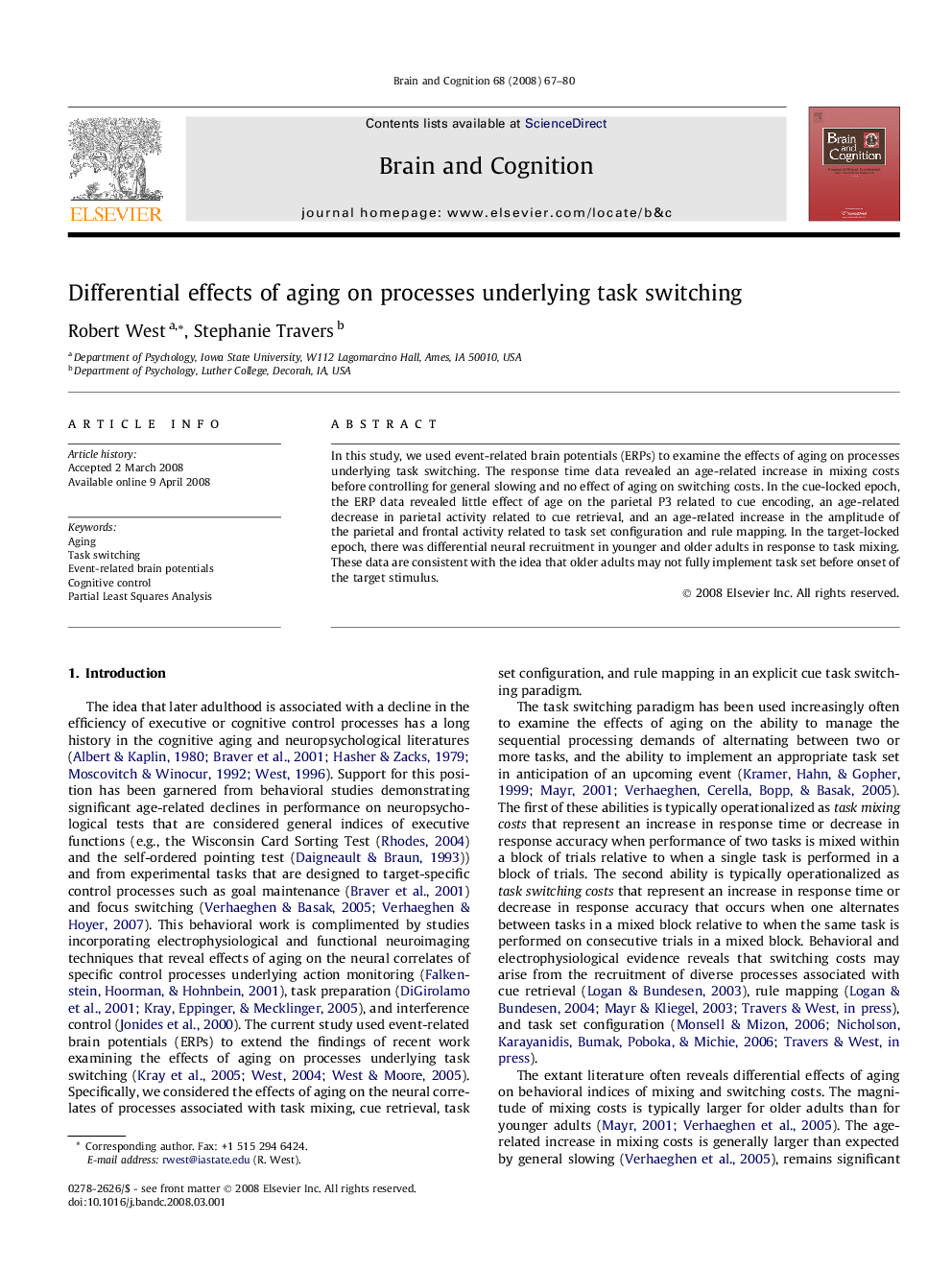| Article ID | Journal | Published Year | Pages | File Type |
|---|---|---|---|---|
| 924293 | Brain and Cognition | 2008 | 14 Pages |
In this study, we used event-related brain potentials (ERPs) to examine the effects of aging on processes underlying task switching. The response time data revealed an age-related increase in mixing costs before controlling for general slowing and no effect of aging on switching costs. In the cue-locked epoch, the ERP data revealed little effect of age on the parietal P3 related to cue encoding, an age-related decrease in parietal activity related to cue retrieval, and an age-related increase in the amplitude of the parietal and frontal activity related to task set configuration and rule mapping. In the target-locked epoch, there was differential neural recruitment in younger and older adults in response to task mixing. These data are consistent with the idea that older adults may not fully implement task set before onset of the target stimulus.
